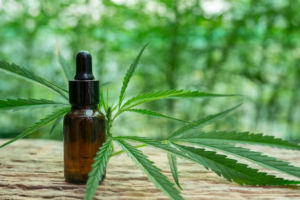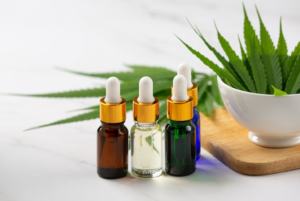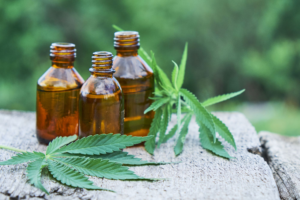
CBD-infused products have gained immense popularity, offering a range of potential benefits for overall well-being. A particularly intriguing application is CBD soap, an innovative means to harness CBD’s potential skin benefits. This comprehensive guide provides detailed information on formulating homemade CBD soap, ensuring both quality and safety.
Understanding the Basics of CBD Soap
The increasing popularity of CBD-infused products has led to a surge in consumer interest in understanding the underlying science and benefits. While most associate CBD with tinctures, edibles, or topical creams, its integration into the world of personal hygiene has not gone unnoticed. CBD soap is making waves as an effective and natural skincare alternative.
Why CBD Soap?
CBD, short for cannabidiol, is a natural compound found in the hemp plant. It interacts with the endocannabinoid system (ECS) in the human body, which is responsible for maintaining homeostasis. This is where the benefits of CBD soap come into play. When applied topically, CBD can interact with cannabinoid receptors present on the skin’s surface. This interaction is believed to offer a range of skin benefits including moisturizing properties, reducing inflammation, and potentially alleviating skin issues like eczema or acne.
The skin is the largest organ of the human body and is exposed to daily pollutants, dirt, and harmful UV rays. It becomes essential to ensure the skincare products we use are devoid of harmful chemicals. CBD soaps typically emphasize natural ingredients, ensuring not only the benefits of CBD but also a holistic approach to skincare.
Quality of Ingredients
When it comes to CBD soap, the purity of the ingredients defines its efficacy. It’s not just about adding CBD, but ensuring that the CBD used is of the highest quality. Beyond CBD, these soaps often integrate other natural oils and ingredients known for their skin benefits. Ingredients like shea butter, coconut oil, and essential oils are combined with CBD, providing a nourishing experience for the skin.
Choosing the Right CBD Oil for Your Soap
The market is flooded with various CBD products, making it challenging to identify which one is suitable for your needs, especially when considering making homemade CBD soap.
Comparative Table: Types of CBD Oil
| Feature | Full Spectrum | Broad Spectrum | CBD Isolate |
| Contains CBD | Yes | Yes | Yes |
| Contains THC | Trace amounts (usually <0.3%) | No | No |
| Entourage Effect | Yes (Due to the presence of various cannabinoids) | Yes (Without THC) | No |
| Purity | Contains other cannabinoids, terpenes, and compounds | Contains multiple cannabinoids minus THC | 99% pure CBD |
| Best For | Those wanting full plant benefits, including trace THC | Those wanting benefits without any THC | Those who want only CBD, without other hemp compounds |
| Flavor Profile | Distinct hemp flavor due to various compounds | Milder hemp flavor than full spectrum | Almost tasteless, making it versatile for recipes |
This table provides a concise snapshot of the differences between each type of CBD oil. Whether you’re looking for the synergy of the ‘entourage effect’ or the purity of isolated CBD, understanding these distinctions can help guide your decision when choosing the right oil for your homemade CBD soap.
Understanding CBD Spectrums
When selecting a CBD oil, it’s crucial to understand the differences between Full Spectrum, Broad Spectrum, and CBD Isolate.
- Full Spectrum: Contains all compounds found in the cannabis plant, including trace amounts of THC. This type offers what’s known as the ‘entourage effect’, where the compounds work synergistically to enhance their effects.
- Broad Spectrum: Contains multiple cannabis plant compounds, but is THC-free. It still offers the benefits of the ‘entourage effect’ without THC’s presence.
- CBD Isolate: Pure CBD without any other cannabis compounds. It’s ideal for those who want just CBD without other ingredients.
Third-party Testing
It’s essential to ensure that the CBD oil you choose has been tested by an independent, third-party lab. This will verify its purity, potency, and ensure that it doesn’t contain harmful levels of contaminants.
Extraction Method
The extraction method plays a pivotal role in determining the purity and efficacy of the final product. CO2 extraction is widely regarded as the gold standard, as it ensures a pure end product without the use of harmful solvents.
Carrier Oils
The carrier oil used in the CBD product can affect its absorption and efficacy. Some common carrier oils include coconut oil, hemp seed oil, and olive oil. Each has its own set of benefits, so it’s important to choose one that aligns with your skin’s needs.

Homemade CBD Soap: Two Key Recipes
Lye-Based CBD Bar Soap Recipe
Ingredients:
- 10 ounces coconut oil
- 5 ounces each of cocoa butter, shea butter, castor oil, and avocado oil
- 11.9 ounces filtered water
- 4.1 ounces lye
- 1 ounce of an essential oil (e.g., lavender)
- A specific quantity of CBD oil as per preference.
Directions:
- Melt and combine all oils in a large pot.
- Prepare the lye-water mixture, ensuring safety precautions are adhered to.
- Blend the oil and lye-water mixtures at the desired temperatures.
- Incorporate essential oils.
- Pour, mold, and allow the soap to set for a specific period.
No-Lye CBD Bar Soap Recipe
For those cautious about using lye, a simplified recipe involves melt-and-pour bases.
Ingredients:
- 1 pound melt-and-pour soap base
- A chosen quantity of CBD oil
- Optional ingredients: fragrance oils, colorants, or botanical additives.
Directions:
- Melt the soap base.
- Mix in CBD oil.
- Add optional ingredients.
- Pour into molds and let set.
Why Opt for CBD Soap?
CBD soap has become a sought-after solution for conditions like dry, irritated skin. Studies from 2020 indicate that CBD’s influence on the ECS might contribute to its skin benefits. Conditions like acne, hair loss, and pigmentation issues might be linked to ECS disruptions, making CBD a potentially effective topical treatment.
The Therapeutic Benefits of Using CBD Soap
CBD, short for cannabidiol, is a compound found in the cannabis plant that has garnered significant attention due to its potential therapeutic properties. When integrated into soap, CBD offers several unique advantages:
- Skin Health: CBD has anti-inflammatory properties which can help alleviate skin redness, irritation, and inflammation. This makes it particularly useful for individuals with sensitive skin or conditions like eczema and psoriasis.
- Moisturization: CBD oil is known to be a potent moisturizer, helping to prevent dry skin and flakiness. It can maintain skin hydration without clogging pores, making it ideal for a range of skin types.
- Anti-Aging: The antioxidants present in CBD can counteract free-radical damage, potentially reducing visible signs of aging like wrinkles and skin dullness.
- Acne Management: Some studies suggest that CBD may help regulate oil production in the skin, which could assist in managing acne breakouts.
- Relaxation and Stress Relief: Beyond just the physical skin benefits, using CBD soap can also be a therapeutic ritual. The act of massaging the soap into the skin during a bath or shower can be a moment of relaxation, further enhanced by the calming effects of CBD.
CBD soap, therefore, is more than just a trend; it’s a blend of nature and science designed to enhance skincare routines. However, as with all skincare products, individual results may vary, and it’s always recommended to patch-test any new product to check for sensitivities.
Ensuring the Authenticity of Your CBD Soap Ingredients
With the surge in popularity of CBD-based products, the market has been flooded with various offerings, not all of which are of high quality. To ensure that you’re reaping the full benefits of CBD in your homemade soap, consider the following:
- Third-Party Testing: Always source CBD oils that come with a certificate of analysis (COA) from an independent, third-party lab. This certificate should confirm the cannabinoid content and ensure the product is free from harmful contaminants.
- Organic Source: Opt for CBD oils derived from organically grown hemp. This ensures that the hemp plant has not been exposed to pesticides, herbicides, or synthetic fertilizers that could compromise its quality.
- Extraction Method: The CO2 extraction method is considered the gold standard, as it preserves the purity of the CBD while eliminating unwanted residues.
- Transparency: Brands that are open about their farming, extraction, and production practices are generally more trustworthy. This information is often available on their official websites.
- Avoiding Synthetics: Be cautious of products that contain synthetic CBD or are labeled as “CBD-rich.” These might not offer the same benefits as natural CBD.
By being meticulous in sourcing and selecting your ingredients, you ensure that your homemade CBD soap is both effective and safe for use. Prioritizing quality will always yield better results in any DIY endeavor.
Conclusion
Mastering the art of CBD soap-making allows for endless experimentation with scents, textures, and benefits. As always, the cornerstone of an effective CBD soap is high-quality CBD oil. Experience the joy of natural, CBD-enriched cleansing today!





